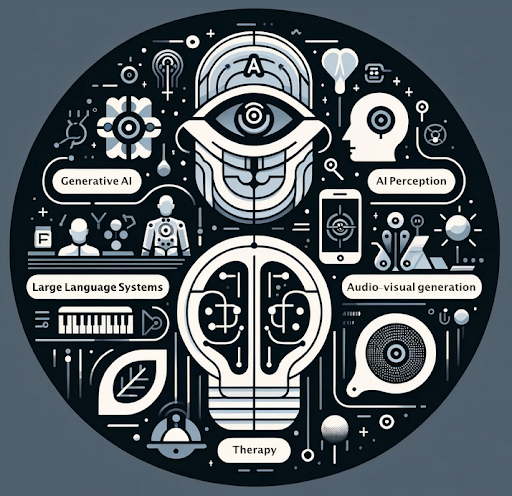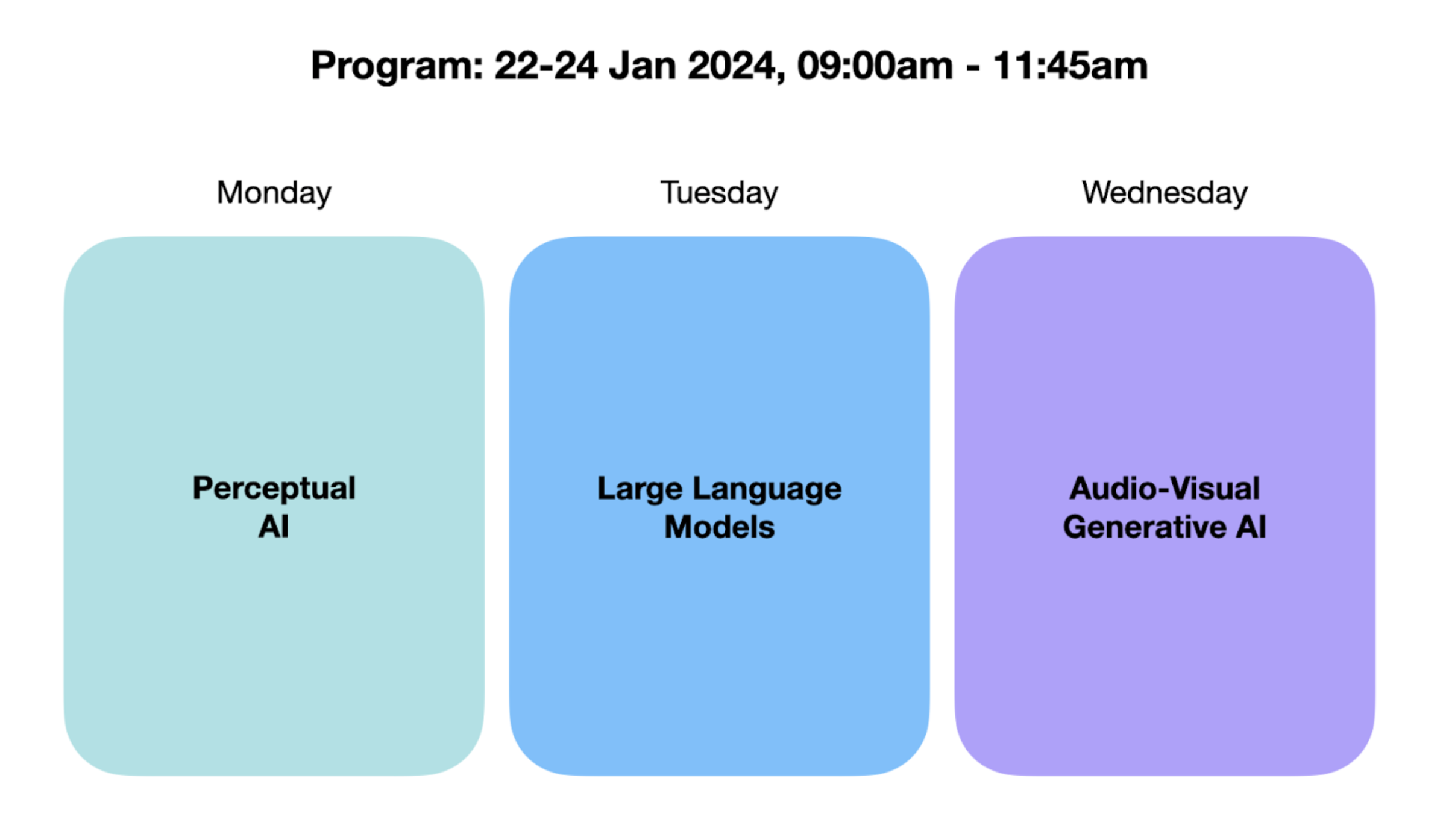22 to 24 Jan. 2024
Workshop on Interactive AI Systems for Digital Therapeutics
Join us for three days of immersive AI exploration, bridging perception and creativity, at the Champalimaud Foundation, January 22-24, 2024.
22 to 24 Jan. 2024
Join us for three days of immersive AI exploration, bridging perception and creativity, at the Champalimaud Foundation, January 22-24, 2024.

On behalf of the Champalimaud Research Programme on Digital Therapeutics led by Dr. John Krakauer and Dr. Joe Paton, we'd like to invite you to the workshop on interactive AI systems. At Digital Therapeutics group, our mission is to leverage cutting-edge technology to create evidence-based, personalised medical interventions to prevent, manage, or treat a broad spectrum of physical, mental, and behavioural conditions. Digital therapeutics represent a significant shift in the healthcare landscape, blending technology with traditional therapeutic approaches through the use of digital systems driven by AI to treat medical conditions, supplement existing treatments, or to be used in preventive healthcare.
Over the last years, AI technologies mediating interactions between humans and machines have made remarkable advances, especially in the area of generative AI. This allows not only for tracking and interpreting human behaviour but also for the creation of content like text, images and audio in real-time. These developments enable groundbreaking opportunities in digital therapeutics, while supporting advancements in diagnostics and surgery.
1. AI Perception: How can we use AI to better interpret human data in real time, focusing on body movements, to improve real-time 3D modeling and create more immersive human-AI interactions and more accurate treatments?
2. Large Language Models: How can we effectively combine LLMs with multi-modal tracking data and generative AI to create adaptive, real-time environments to gain insight into human cognition and behaviour through interaction with these systems?
3. Audiovisual Generative AI: How can the advancements in generative AI, including the creation of images, videos, sounds, and 3D worlds, be harnessed to develop novel therapeutic approaches and improve real-time control of stimuli in diverse environments?
Each of the above areas carries immense potential not just in digital therapeutics but also in the arts, specifically in the form of installations and immersive experiences. These artistic applications present an accessible approach to explore the potential and practicality of immersive technologies. However, it's when these sections come together that we can devise closed-loop interactive AI systems, which is the core focus of this workshop.
Please note that registrations for this event are now closed.

The workshop is a three half-day event bringing together scientists, engineers, clinicians, entrepreneurs, and artists to collaborate and exchange ideas on science, technology, healthcare, and art. Each morning will contain a set of talks by renowned experts followed by a short discussion. Some of the innovative ideas might be featured in the forthcoming Metamersion exhibition in March (see Metamersion at Champalimaud Foundation) giving the general public a glimpse into the future of AI in digital therapeutics.
Alexander Loktyushin João Santinha
Eric Lacosse Tiago Marques
Fatemeh Molaei
Johannes Stelzer
Niklas Fricke
